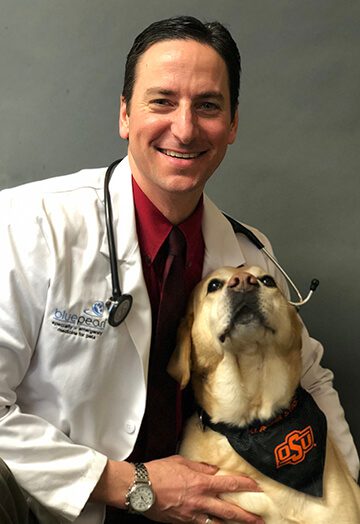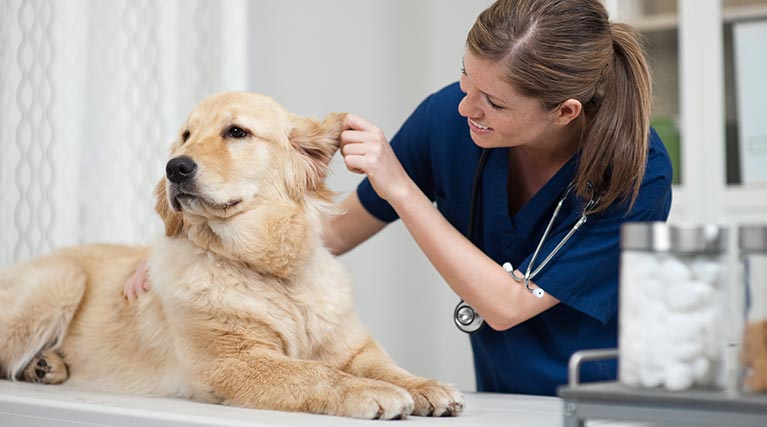Vaccination Guidelines From Your Relied On Vet
Vaccination standards provided by your trusted vet play a crucial duty in guarding your pet's wellness and wellness. Core vaccinations are basic for all animals, while non-core injections can be customized to details way of livings and ecological exposures. Understanding the subtleties of inoculation schedules, which begin as early as six to 8 weeks, is necessary for ideal protection. In addition, resolving typical misconceptions surrounding vaccinations can further improve pet owners' confidence in these safety nets. As we check out these crucial aspects, it becomes progressively clear why routine examinations with your vet are crucial for educated decision-making.

Significance of Vaccinations
Inoculations play a crucial role in securing pets against a series of avoidable conditions. By boosting the body immune system to recognize and deal with particular virus, vaccinations considerably lower the occurrence of contagious illness that can impact an animal's wellness and longevity. Not only do vaccinations protect private pets, but they likewise add to herd resistance, thus reducing the total occurrence of diseases in the animal population.
Prompt vaccinations aid to alleviate the spread of diseases such as rabies, parvovirus, and distemper, which can have serious effects for both pet dogs and human beings. Inoculations are frequently a requirement for boarding facilities, grooming solutions, and pet dog parks, making them crucial for those that desire to mingle their pet dogs.

Core Vaccinations for Pet Dogs
While the particular vaccination demands of pets can vary based on specific factors, core vaccinations are globally suggested to protect versus one of the most major and common illness (Pet Vaccinations). Core vaccinations are those deemed essential for all animals, despite their way of living or geographical area, as they guard versus highly infectious and possibly deadly ailments
For canines, the core injections consist of those for canine distemper, parvovirus, adenovirus (hepatitis), and rabies. Adenovirus can result in liver illness, while rabies is a zoonotic illness that positions a threat to both human beings and animals.
In cats, core vaccinations incorporate feline panleukopenia, feline calicivirus, feline herpesvirus (rhinotracheitis), and rabies. Feline panleukopenia is a very transmittable viral condition that influences the immune system and intestines. Calicivirus and herpesvirus are significant contributors to top breathing infections in pet cats, while rabies remains a critical issue for public wellness.
Seek advice from with your vet to guarantee your pet dogs get their core inoculations on timetable.
Non-Core Vaccines Explained
Non-core injections are tailored to resolve specific threats linked with a pet's lifestyle, direct exposure, and environment to specific diseases. Unlike core vaccines, which are generally advised for all family pets, non-core vaccinations are thought about based on individual circumstances. These vaccinations are particularly crucial for pets that may experience special microorganisms due to their geographical location, travel routines, or activities.
Instances of non-core injections include those for Bordetella bronchiseptica, which is connected to kennel cough, and Lyme disease, triggered by ticks. Animals that frequently engage with various other pets, such as those in boarding centers, dog parks, or grooming environments, might gain from Bordetella vaccination. If you live in a location where Lyme disease is common, immunizing versus this condition can be a sensible choice for outdoor-loving pets.
Other non-core injections might include those for leptospirosis, canine influenza, and feline leukemia, depending upon the certain risk variables existing. It is important to have a thorough conversation with your vet about your family pet's way of living and the potential requirement for these vaccines, making sure a customized inoculation strategy that finest safeguards your furry friend.
Inoculation Set Up Introduction

As animals mature, it is very important to abide by the suggested booster inoculations. Pet Health Checkup. For adult pets, core vaccinations are typically provided every one to 3 years, depending on the specific injection and neighborhood laws. Non-core vaccinations might be suggested based upon way of life variables and regional illness prevalence, requiring a tailored technique
Routine veterinary examinations are vital for updating vaccination timetables. Your vet can supply guidance on the most ideal booster shots for your pet dog, factoring in Full Article age, wellness condition, and ecological risks. By remaining proactive and educated, pet dog proprietors can ensure their fuzzy buddies obtain efficient and timely inoculations, thereby safeguarding their wellness and wellness throughout their lives.
Usual Misconceptions Regarding Vaccinations
Mistaken beliefs about animal vaccinations can cause complication and hesitation amongst family pet proprietors pertaining to the booster shot procedure. One common myth is that vaccinations are unnecessary for indoor pets. While it holds true that interior pet dogs deal with lower dangers, they are not completely unsusceptible to conditions, as microorganisms can be presented through numerous ways, consisting of human garments and various other animals.
Another misconception is that injections can create the illness they intend to avoid. In truth, many injections include inactivated or undermined microorganisms, which can not trigger illness in healthy and balanced animals. Some pet dog proprietors likewise think that their family pets need to not be immunized if they are already healthy; however, inoculations are an aggressive procedure that assists avoid the beginning of ailment.
In addition, many pet owners fear that injections will certainly lead to lasting health issues. The advantages of vaccination-- shielding pet dogs from potentially dangerous illness-- far outweigh the threats.
Verdict
In recap, adherence to inoculation standards is critical for making certain the wellness and durability of pet dogs. Dispelling typical misconceptions surrounding inoculations better enhances the significance of informed decision-making in animal care.
Not just do inoculations safeguard individual animals, however they likewise Find Out More add to herd resistance, thereby decreasing the total frequency of diseases in the family pet populace.
Misconceptions regarding pet vaccinations can lead to complication and hesitation amongst pet dog proprietors regarding the booster shot procedure. While it's true that interior pet dogs deal with lower dangers, they are not entirely immune to diseases, as microorganisms can be presented through different ways, consisting of human garments and other pets.
Some animal proprietors likewise believe that their family pets ought to not be immunized if they are currently healthy; nonetheless, inoculations are a proactive measure that aids prevent the start of health problem.
The advantages of inoculation-- protecting pet dogs from possibly dangerous illness-- much outweigh the risks.